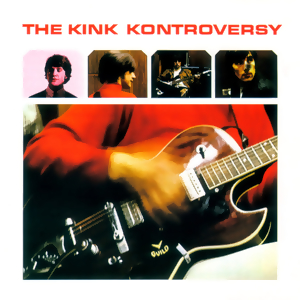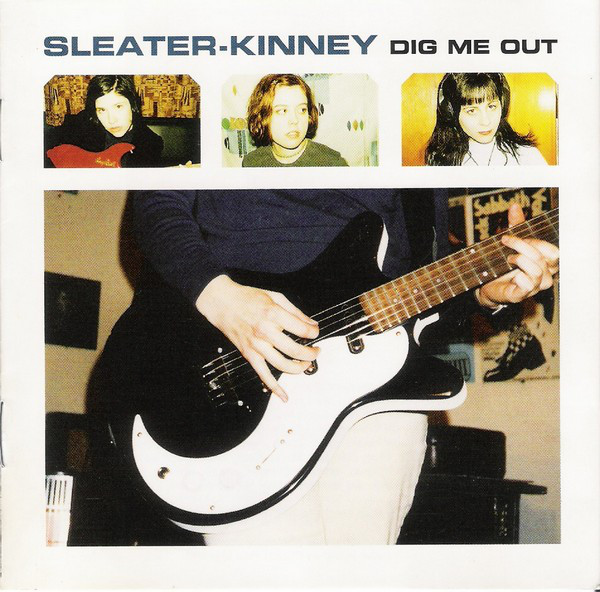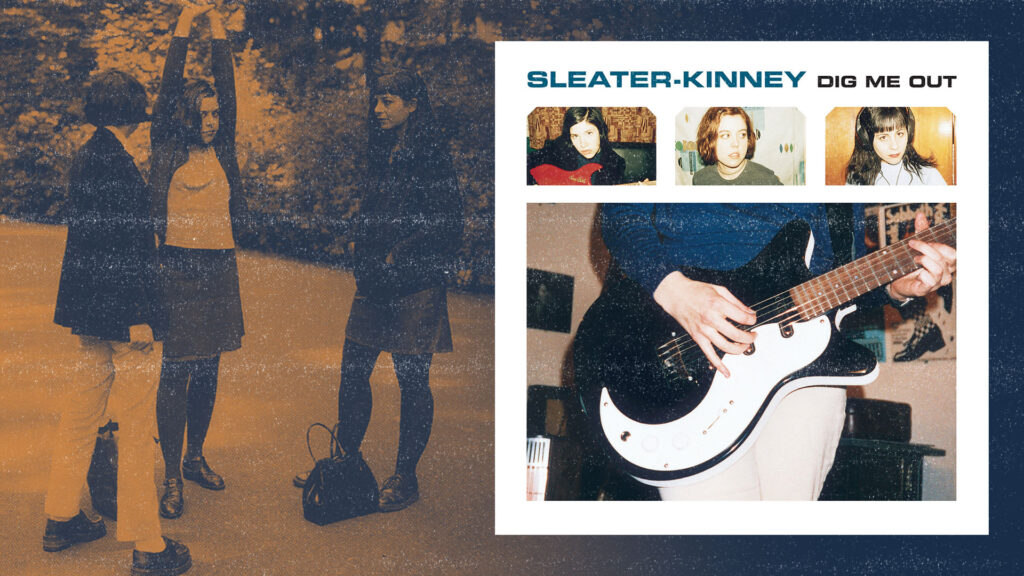Oftentimes, it’s the simplest building blocks that serve as the foundation for our grandest structures. The Eiffel Tower sits atop a slab of concrete, the Great Pyramids were carefully constructed from blocks of compressed sand. In 1997, we bore witness to the perfect confluence of individual artistic prowess. Sleater-Kinney, with Dig Me Out, delivered something impossible to imitate with just a simple formula: drums, words and guitar.
Released on April 8, 1997, Dig Me Out was the Olympia, Washington band’s third record, but their first for venerated indie label Kill Rock Stars and their first with the dynamic precision of Janet Weiss behind the drum kit. It is an experiment in abandoning all reservations, leaving any notions of tranquility at the door. Sleater-Kinney demanded attention in the endless fervor of their mellifluous missive.
Bombast is so easily made bluster when there’s no substance. The 13 songs on Dig Me Out rolled up their sleeves to reveal weary hearts, each track a formative journey through heartache and survival of the emotional fallouts that beset our younger years. It’s also infamous for being the record that outed Carrie Brownstein and Corin Tucker, in the May 1997 issue of SPIN Magazine.
Sleater-Kinney has often been a band that critics and audiences have adorned with labels, whether they have wanted them or not: all-female, queer, riot grrrl. Despite that, they’ve been a band that disparate groups of people have found themselves reflected in and claimed as their own or struggled to find the right envelope in which to file them.
Efforts to define Sleater-Kinney are a wasted effort. Asking ourselves where they fit is a disservice, as asking the wrong question will always lead to disappointing results. Dig Me Out is an album that exists without the need or desire for boundaries. It is free and formless, pushing as far as it can while holding itself back in equal measure.
Dig Me Out is a statement re-introducing a band on its third record. The opening title track appears out of nowhere and takes off, like a car careening wildly down a packed street with an experienced hand on the wheel. It’s the first song with Weiss on drums, and the first song brought to her as the trial run for her turn as the band’s longest-running drummer. The passing grade is made abundantly clear in an instant.
“Let me in, and let me go, go, go, go,” Tucker belts as “Dig Me Out” lets out and as much as it feels like yearning for an imperceptible love, it strikes a chord as a command to the listener.
The topic of the day when Dig Me Out released was the relationship between Brownstein and Tucker, when they were suddenly outed in the pages of SPIN and the world sifted through the details on their latest record to find clues that might make the picture whole. “One More Hour” might live as the most implicit example of exposition on their romantic dissolution, but dares to paint a striking and stark portrait of the need to hold on for just a single moment, just before you know everything will change forever.
If “One More Hour” is the desperation to hold on, “Turn It On” and “The Drama You’ve Been Craving” represent the frustration in the wake of the moments after, every movement and fleeting glance a spark that threatens to immolate us all.
Lyrically, Dig Me Out is a record exploring the relationship between two people. Brownstein wrote in her autobiography Hunger Makes Me a Modern Girl that the songs on Dig Me Out are indeed about either her or Tucker’s future husband Lance Bangs, but the genius of their talent is how they open themselves so bare while simultaneously presenting a neutral ground for an eager audience to find themselves.
It’s not until halfway through the record that we are served a thesis statement. “Words and Guitar” are the core tenants of the band, more than interpersonal relationships or scene politics, Sleater-Kinney is a trio deftly in charge of their endless talent. “Take the noise in my head, c’mon and turn it up,” Tucker commands.
The late 1990s were not often a haven for women to be so in command of the conversation, and with Sleater-Kinney it’s easy to see how music critics grasped desperately at definitions for women being unapologetic in their voice. Songs like “Little Babies” poked at the infantilizing of traditional maternal roles. “Dance Song ‘97” played with form, employing new rhythmic structures akin to new wave to find new footing.
Dig Me Out not only added a new member to the band, it also created a new formula for themselves, as Brownstein and Tucker found themselves more in conversation on the record than in their previous two outings. Their guitars play in disparate tones that complement each other without drowning out the other and the pair trade vocal duties in their contrasting signature style. Tucker’s voice is loud and boisterous while Brownstein vocals are an arresting brassy rumble, disparate approaches that craft Sleater-Kinney’s individual vision.
Dig Me Out is the beginning of an era, a point on the map that you can point to as a reference for where a turn was made down a new road. The addition of Weiss to the trio formed a new creative output and redefined a band just as they were breaking away from the scenes that might constrain them. As the band went on to tour bigger stages and new heights, all the while releasing albums grander and more ambitious in scope, they seemed to live in the space that Dig Me Out created.
In a nod to their status as a band that belongs to the hallways of history, the album artwork is a direct reference to the Kinks’ 2rd album, 1965’s Kontroversy. Both the Kinks and Sleater-Kinney share a bond, insofar that they are bands not content to create what is expected of them, instead choosing a creative path that can often stray to places far from their origins. Not to say that they can’t remain in sight of where they came from, but there is no retreating into the past.


Dig Me Out is an exercise in finding your way forward, pushing through the energy that threatens to hold you in place. Sleater-Kinney exist as an anomaly, an indefinable band that has pushed themselves into new boxes with each iteration of themselves. Dig Me Out opened the band to be free of any of the trappings that might befall a band of three women playing rock and roll, proving how easily they command bombast and restraint in service of their distinctive vision.
There is no band like Sleater-Kinney in this world or the next. Dig Me Out is a blueprint lost to time, never recreated or retreated into, but a document of a place in time of something so wholly unique. It is a testament to the strength of the core tenants of a structure, proof that anything is possible building off a solid foundation, filling the space surrounding you.







